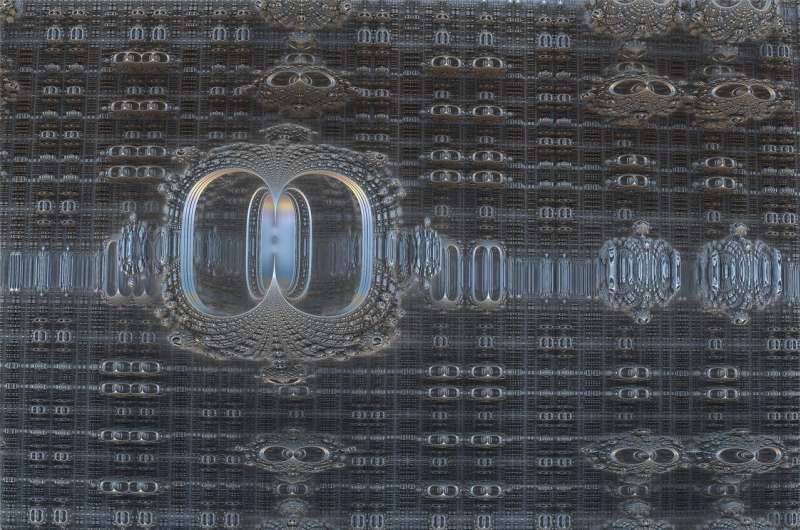
A new method of identifying wave signals using quantum computing could be useful in the future.
A team from the University of Glasgow's School of Physics and Astronomy have developed a quantum method to cut down on the time it takes to match signals.
The methodology that underpins some of the discoveries from the Laser Interferometer Gravitational Observatory (LIGO) in America and the Virgo in Italy is known as matched filtering.
The faint ripples in spacetime caused by the collision and merger of black holes are picked up by the most sensitive sensors ever created.
The noise of the data collected by the detector can be used to pick out signals from the waves. It works by sifting through the data, searching for a signal which matches one out of hundreds of trillions of templates, pieces of pre-created data which are likely to correlate with a genuine gravitational wave signal.
Since LIGO picked up its first signal in September 2015, the process has enabled numerous detections.
In a new paper published in the journal Physical Review Research, the team describe how the process could be greatly accelerated by a quantum computing technique.
The process of searching through databases is made much faster by the use of quantum theory.
While quantum computers are still a developing technology, conventional computers are capable of modeling their behavior, allowing researchers to develop techniques which can be adopted when the technology has matured and quantum computers are readily available.
The Glasgow team is the first to adapt the algorithm for the purpose of the search. In the paper, they show how they applied it to the searches using software they developed using the Python programming language.
The team developed a system that is capable of speeding up the number of operations by taking the number of templates and dividing them by the number of operations. As the technology develops, the current quantum processor's performance is expected to improve. A reduction in the number of calculations would result in a quicker time. If a search using classical computing takes a year, the same search could be done in a week with their quantum algorithm.
One of the lead authors of the paper is Dr. Scarlett Gao, from the University's School of Physics and Astronomy. We have been able to develop a system which shows that quantum computing could have valuable applications in the field of astronomy.
We were lucky to have the support of some of the UK's leading quantum computing and gravitational wave researchers during the development of this software.
While we have focused on one type of search in this paper, it is possible that it could also be adapted for other processes, like this one, which do not require the database to be loaded into quantum random access memory.
The co-lead author of the paper is a student in the School of Physics and Astronomy. The Institute for Gravitational Research in Glasgow has been working on LIGO for more than 50 years.
The potential of quantum computing has been demonstrated by the work that I and Dr. Gao did. It is possible that processes like these could be used in future gravitational wave detectors as quantum computers develop. We are looking forward to developing this initial proof of concept in the future.
The paper was written by a group of physicists from the University of Glasgow.
The team's paper is published in Physical Review Research.
More information: A quantum algorithm for gravitational wave matched filtering, arXiv:2109.01535 [quant-ph] arxiv.org/abs/2109.01535 Citation: New algorithm could be quantum leap in search for gravitational waves (2022, April 1) retrieved 1 April 2022 from https://phys.org/news/2022-04-algorithm-quantum-gravitational.html This document is subject to copyright. Apart from any fair dealing for the purpose of private study or research, no part may be reproduced without the written permission. The content is provided for information purposes only.